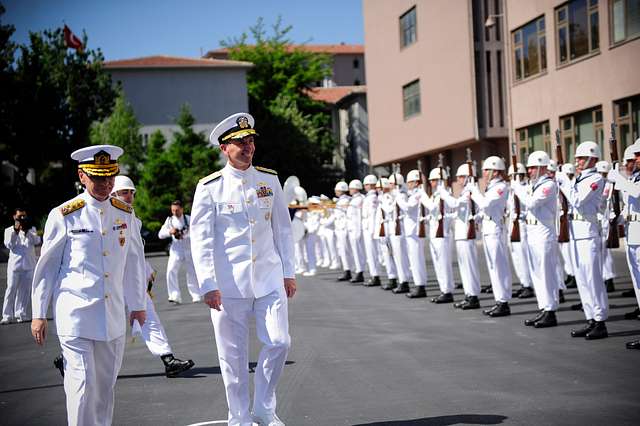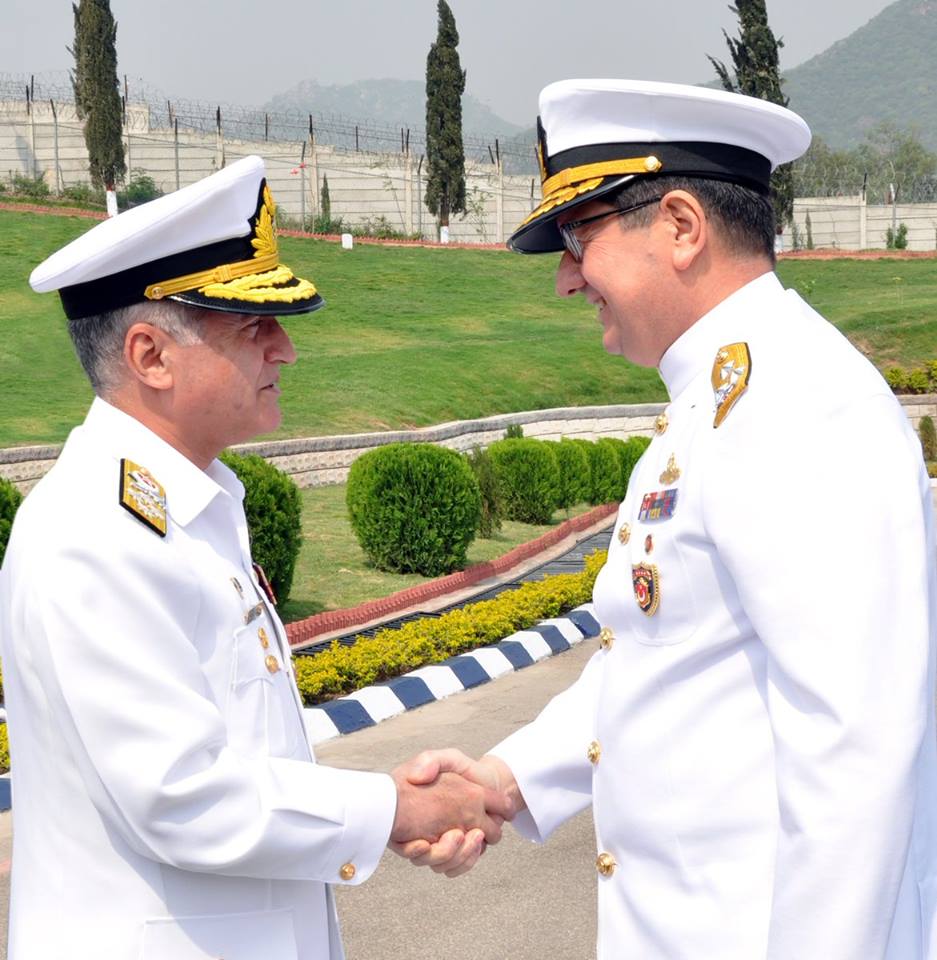- Oct 3, 2018
- 3,618

September 11th 2006
Admiral Adnan Özbal, Chief of Naval Operations, sat at the head of the long steel table, papers folded neatly in front of him. The invasion had changed everything. While Özbal predicted the Turks would lose the war, he watched as political officers and fascists took the helm of governance and made decisions without consulting the armed forces.
Özbal and other high-ranking officers helplessly watched as the Turkish military was handed defeat after defeat, and thousands died in the coalition strikes against the country. Then, he vowed to himself, he would never watch another defeat at such a scale for the Turkish armed forces.
To his right sat Vice Admiral Gökçen Fırat, commander of the Aegean and Mediterranean fleets. Across from her, Rear Admiral İsmail Güldoğan, on loan from General Staff Headquarters, drummed his fingers absently on a sealed operations file. Lower officers from communications, doctrine, and intelligence sat between them, with some listening as others took notes.
When Özbal finally spoke, it was rather somber. “I understand that in recent weeks, discussions at the General Staff have turned into a blame game. However, I will be frank when I say that we failed. Let’s not waste time pretending otherwise.”
A few heads shifted uncomfortably. No one challenged him. It was an uncomfortable truth that the regular Turkish armed forces had proved poorly and that the regime had stripped them of their leadership, both commissioned and non-commissioned, in favor of political considerations.
“We had a fleet in the Black Sea that couldn’t stop the Russians from landing within striking distance of Zonguldak. We had a fleet in the Aegean that couldn’t stop a foreign task force from sailing straight through our territorial waters and landing troops on Turkish soil. American, British, and Australian ships outmaneuvered us not because they had better ships, though they did, but because they had better people. Better command decisions. We were out-thought.”
He paused, letting the silence hang as he looked at the officers around them. “So, we’re done chasing parity. We're done playing fleet games we can't afford. From today forward, doctrine changes.”
Vice Admiral Fırat raised her eyes. “Sir, with respect… are you saying we abandon our TFX project and focus on heavy ships?”
Admiral Özbal leaned forward. “I'm saying we stop pretending that billion-dollar hulls give us power. We fielded six modern frigates, dozens of Korean and Chinese destroyers, and support boats in the Aegean. They were paralyzed by a coordinated strike group with superior air coverage and information warfare. Our sailors fought hard. They died with honor. But they died for a doctrine that belongs in a NATO textbook from 1983. So, our focus will shift to match the doctrine of modern warfare.”
He turned to Rear Admiral Güldoğan. “The General Staff wants a force that can win. Not one that looks impressive on parade. From this moment on, our focus is on quality personnel, high-tempo training, and a shift in procurement to low-cost, survivable platforms. That means unmanned vessels. Drones. Land-based anti-ship missiles from fixed and mobile positions. Anything that kills ships at range and survives the first hour of war.”
Rear Admiral Güldoğan gave a short nod. He didn’t argue.
Vice Admiral Fırat exhaled. “So we cede the sea to them?”
“No,” Özbal said, coldly. “We deny them the sea. That’s a different kind of power.” He paused before continuing. “We’ll scale back in the Black Sea. I’ll speak to Vice Admiral Mustafa Zeki Uğurlu and fleet command at Gölcük next week. He knows he’s in a holding role now, containment, surveillance, and attrition will be our model." He said, pointing to a map of the Black Sea.
"For the Black Sea the goal is to cripple the Russian Fleet at Sevastopol through attrition. The control of the Bosphorus gives us a significant advantage to force the Russians into a pitched battle on our terms." He placed his fingers over the Russian bases in the Black Sea. "The war showed that if the Russians take the initiative, they can sail through the straits without any opposition. We must deny them freedom of movement and then dwindle their numbers through low-cost platforms. If we are unable to deny them the freedom of movement, then their control over the Black Sea means that they can maneuver freely and support amphibious operations.
That does not change my outlook that the future is here.” He tapped the map of the Aegean, where the maze of islands and straits looked like a snare laid in stone. “This is the front. The Aegean is where we bleed, or where we rebuild. Our ability to project power and control the Aegean and Mediterranean is crucial.”
Captain Emre Yılmaz, from naval intelligence, spoke up hesitantly. “Sir, then the exercise?”
Admiral Özbal nodded. “The exercise will reflect the new reality. No large-scale ship-to-ship engagements. No large-scale amphibious assaults. Instead, we will focus on hunter-killer capabilities and, importantly to excel in the information and electronic warfare space. Integrating Kamikaze UAVs and Mobile missile launchers hidden along the coast. Turning the Aegean into an area of sea denial. The enemy will not find a fleet to fight. We’ll force them to split up their forces and then overwhelm their defensive capabilities while targeting their electronic systems.
Vice Admiral Fırat folded her arms, her voice low. “You’ll catch hell from the war college for this shift.”
“I already have,” Özbal said with a bitter half-smile. “They called me 'cavalier'. Said I was turning the Turkish Navy into a rabble of pirates with loitering munitions.”
He looked around the room. “But pirates don’t lose their homeland. We won't be caught assembling warships like lego sets while the enemy lands on our beaches. We’ll be waiting in the rocks. The Aegean Fleet needs to be mobile and integrate its operations across multi-branch capabilities."
Finally, Vice Admiral Fırat nodded. “It is true. The Navy died in the last war. Let’s hope what we build next knows how to kill.”
Rear Admiral Güldoğan interjected. “From the General Staff’s perspective, this is a symptom of a larger issue, and I believe the CNO alluded to it earlier, inter-service interoperability and command structure rigidity. Our procedures for joint operations between the Navy, Air Force, and Marines need streamlining. The bureaucracy is slowing down response times.”
Admiral Özbal nodded. “Precisely. The core competence of admiralty and seafaring must be honed in on. However, I agree with you both. I believe that this exercise must focus on flexibility and rapid decision-making at the operational level. We need to test our commanders’ ability to act independently. We need to train them to act within a unified strategic framework and leverage those assets.”
Rear Admiral Güldoğan tapped his pen on the table. “What the General Staff thinks is helpful is that embedding liaison officers within each branch’s command centers will help to facilitate real-time information flow. Additionally, adopting a modular command structure that can reconfigure based on threat type, be it aerial, naval, or amphibious, will improve responsiveness.”
He looked at the map. “The main challenge we faced in the war was that our forces were spread out, with the bulk of our navy focused here.” He said, pointing to Aksaz. ”Where our navy tried to force a first strike without any understanding of the targets or the objective.” He drew lines on the plastic overlay circling RAF Akrotiri, Israel, and Southern Russia. “This lack of strategic understanding meant that we operated outside the supporting capabilities of the air force, airborne electronic capabilities, or that our forces could coordinate counterattacks on land.
Vice Admiral Fırat added, “We must also enhance our electronic warfare capabilities. During the last conflict, our communications and radar systems were overwhelmed or deceived by electronic countermeasures.” Captain Emre Yılmaz, sitting next to Vice Admiral Fırat, turned to Admiral Özbal and asked, “Admiral, permission to speak?”
“Go ahead, Captain Emre Yılmaz,” Admiral Özbal said, looking at her.
“A critical issue that the fleet faced was not understanding its targets and not integrating geospatial and other intelligence capabilities to provide a full picture. The navy faced a combined fleet of tens of warships across multiple nations. That required significant coordination, and we failed to exploit those gaps. I do agree, we need to invest in assets that will enhance our intelligence gathering capabilities, but also disruption capabilities.
Vice Admiral Fırat leaned forward. “I agree, Captain Yılmaz. The war showed us the serious restraints on our abilities. I do not believe any of us are defending what the regime did…but…we failed to defend our homeland when push came to shove. I think we do need to focus on what went wrong and how to improve it. I hope this exercise will allow us to figure that out and make changes to be prepared.”
Admiral Özbal sat in silence for a moment, his fingers interlaced as his gaze locked on the map. Then he looked up at Vice Admiral Fırat. “Vice Admiral,” he said, “you’ll lead the drafting of the new exercise plan. I trust that in your care."
Vice Admiral Fırat nodded slowly. “Understood, sir.” Her aide took down the notes on his notepad.
“I want every scenario to stress independent operational initiative. No micromanagement from Ankara. If a ship commander sees a threat, I want them trained to act.”
Özbal turned to Rear Admiral Güldoğan. “And I want that modular command structure drawn up and tested in the exercise. Embedded liaisons, inter-branch tasking, mobile C2 units...the works.”
“Yes sir,” Güldoğan replied. “I'll have a preliminary framework to your office within 48 hours.”
Özbal then stood up, the steel legs of his chair screeching faintly against the tile floor. He stepped toward the map as he stepped back from the table. “And one more thing. No PowerPoint. I want sand tables, live rehearsals, and real drills. No simulated victory conditions. If the enemy lands, they land. If we lose a battalion, we lose it. No resets.”
He looked around the room. “This exercise isn’t about public morale or political optics. This is about building a navy that doesn't hope it can defend the homeland, it knows it can. Because the next time someone tests us, I don’t want to see a fleet dying in confusion. I don't want to be the one signing a surrender onboard a battleship. I want them to go home with their fleets limping and their sailors teething."
He paused before saying. “Dismissed.”
Chairs were pushed back, papers gathered, and officers began to file out quietly. Vice Admiral Fırat lingered for a moment, as she casted a glance toward the head of the table, then turned to follow the others. Admiral Özbal remained behind, hands resting on the edge of the table, staring at the map yet again as he wondered whether he had made the right move to support the Young Turks in their plot. The war had taught him one thing: when ideologues take power, the price is always paid in the blood of soldiers and the security of the nation. He exhaled quietly, gathered his cap and dispatch case, and stepped out into the waiting dusk. His helicopter waited on the landing pad, blades already spinning, ready to lift him to Gölcük. There was still much to rebuild. And less time than ever.



